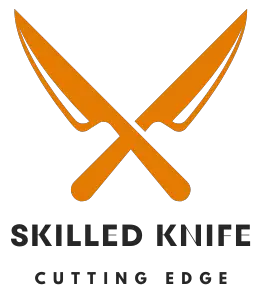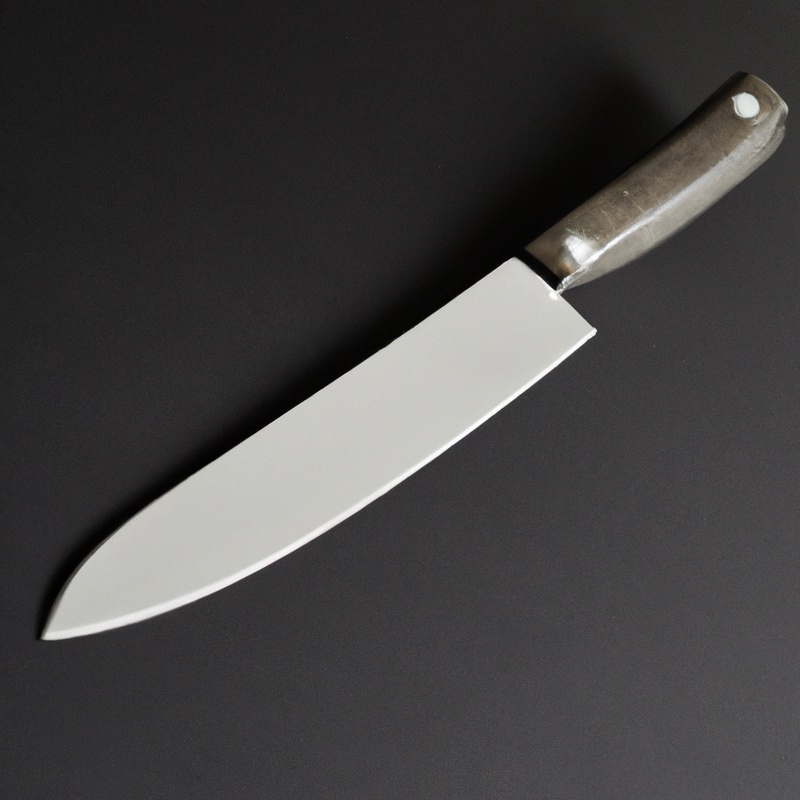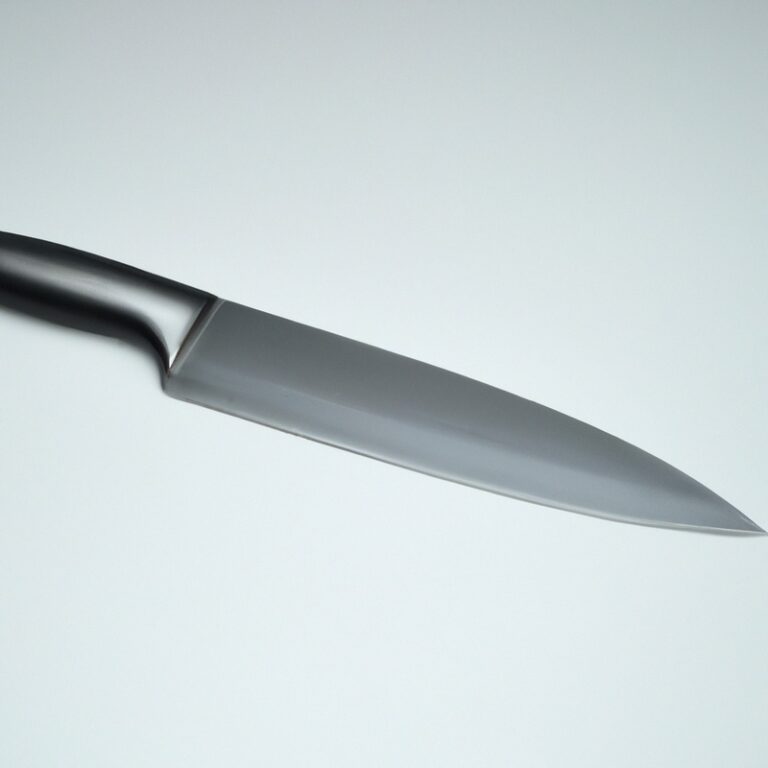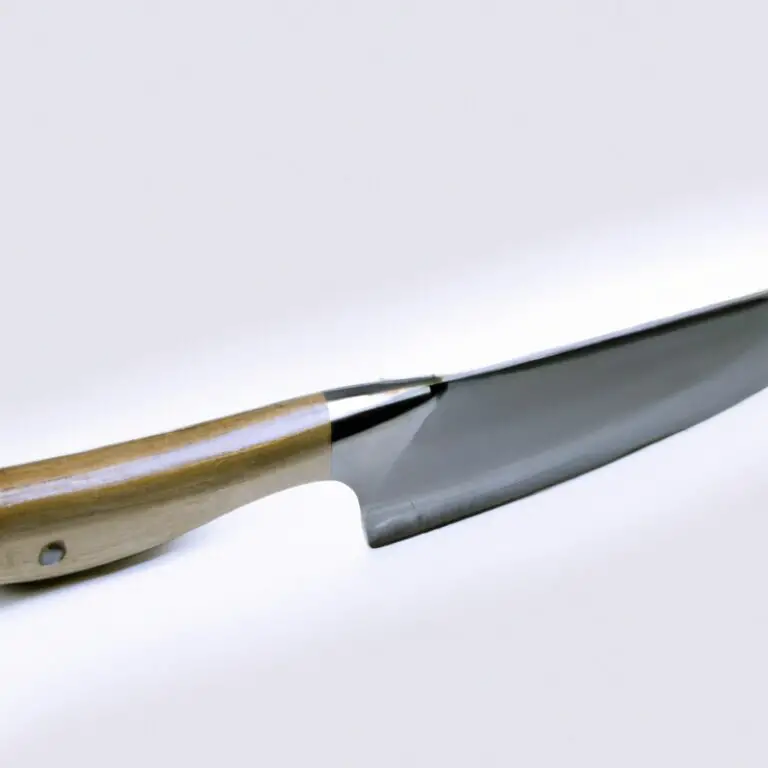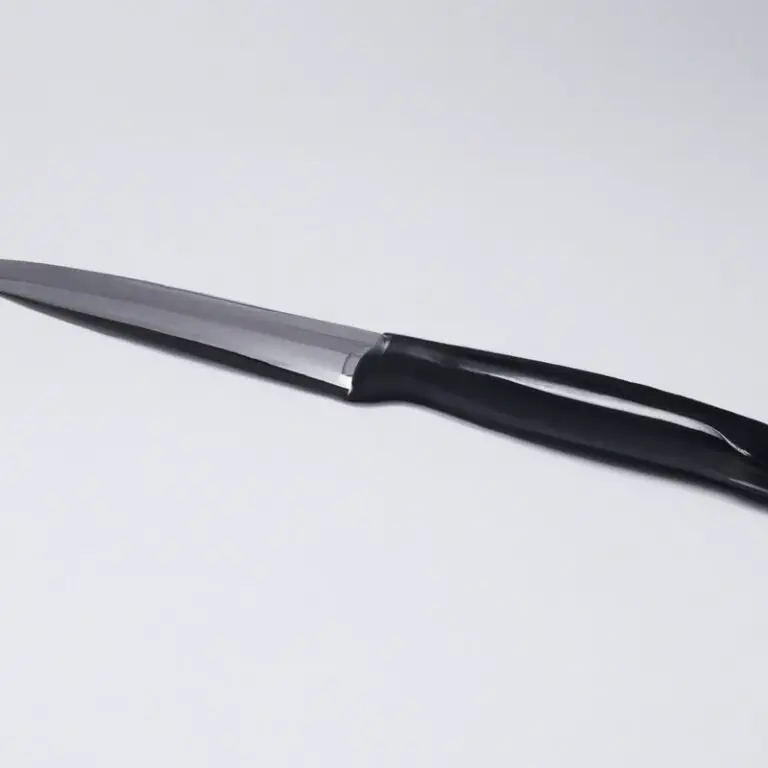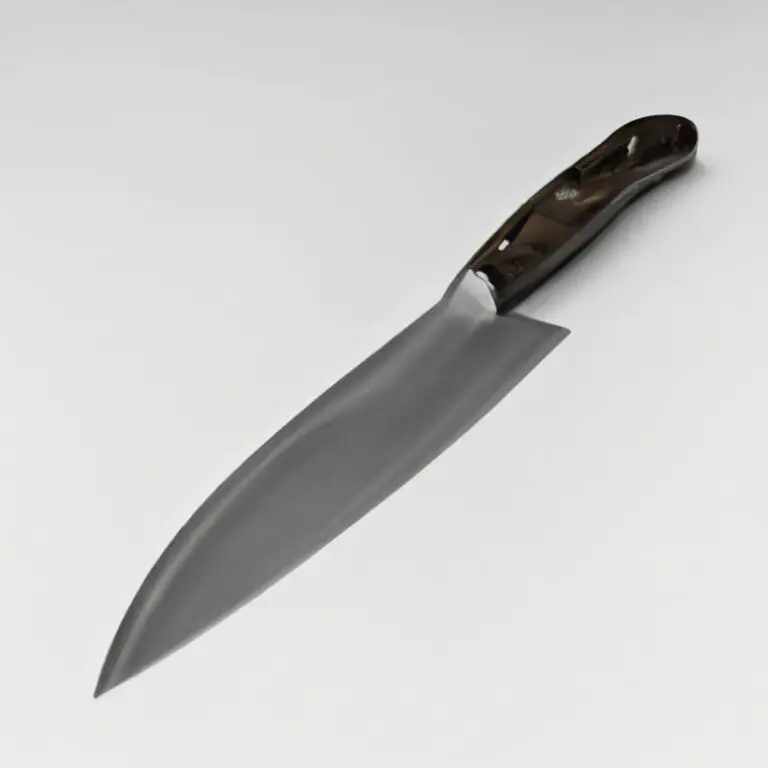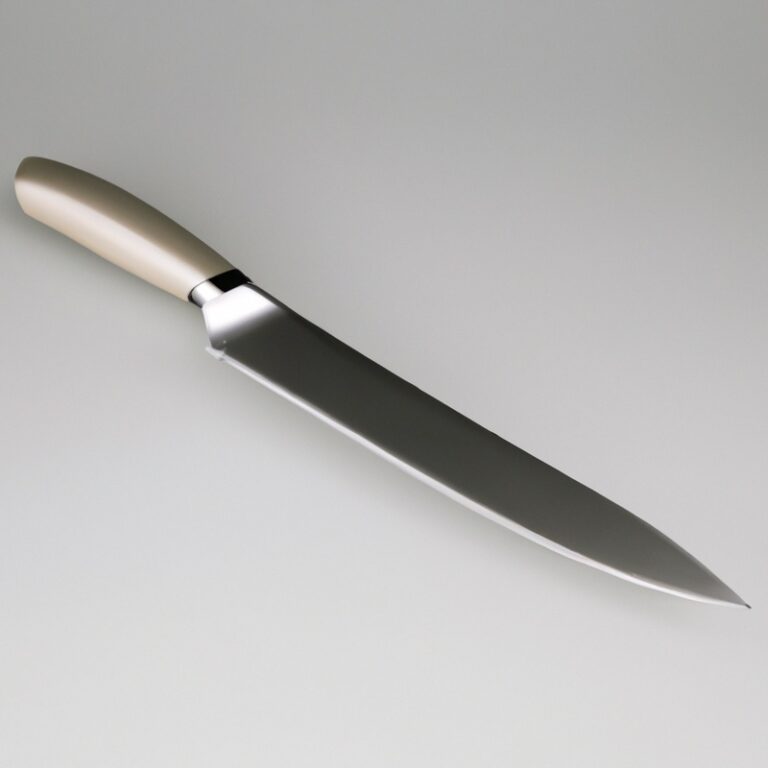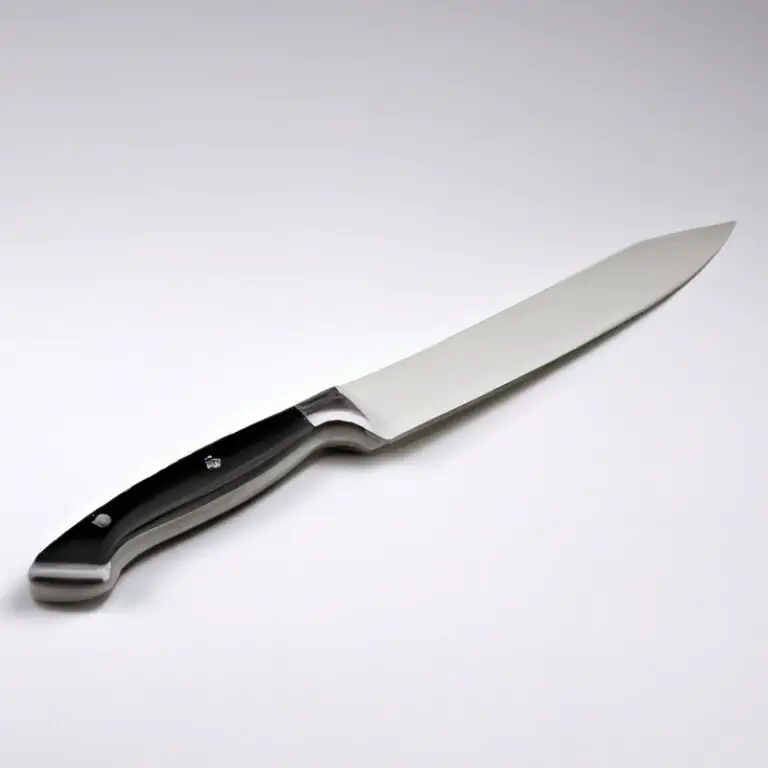What Is The Role Of Nitrogen In Stainless Steel Knives?
Key Takeaways:
- Nitrogen improves the corrosion resistance of stainless steel knives.
- Higher nitrogen content leads to increased hardness and strength in stainless steel knives.
- The addition of nitrogen can enhance the sharpness and cutting performance of stainless steel knives.
- Nitrogen plays a crucial role in preventing the formation of harmful chromium carbides in stainless steel knives.
Hey there! Have you ever wondered what makes stainless steel knives so durable and corrosion-resistant?
Well, let me introduce you to an unsung hero in the world of stainless steel – nitrogen.
This often overlooked alloying element plays a crucial role in enhancing the properties of stainless steel knives.
In this article, we’ll dive into the role of nitrogen in stainless steel, how it improves corrosion resistance, hardness, and strength, and its impact on edge retention.
Get ready to discover why nitrogen is the secret ingredient that makes stainless steel knives so impressive!
Understanding Stainless Steel
Definition and composition of stainless steel
Stainless steel is a type of steel that contains a minimum of 10.5% chromium, which forms a protective layer on the surface, preventing corrosion.
It is also typically alloyed with other elements such as nickel, molybdenum, and titanium, which enhance its properties.
These alloying elements contribute to its strength, toughness, and resistance to heat and corrosion.
The composition of stainless steel can vary, resulting in different grades tailored for specific applications, such as knives, where high hardness and corrosion resistance are desired.
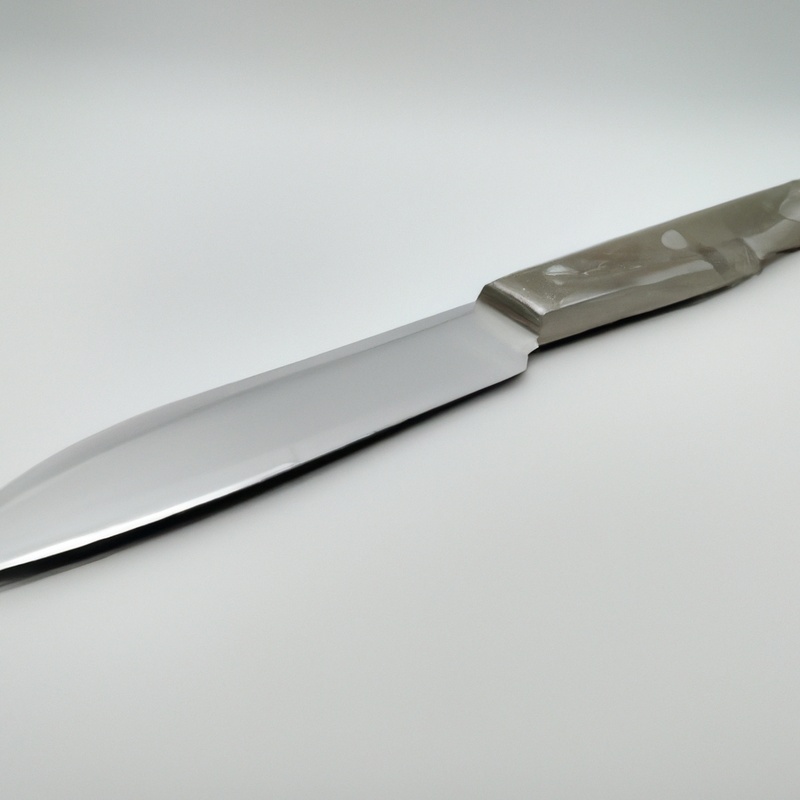
Importance of alloying elements in stainless steel
Alloying elements play a vital role in the composition of stainless steel, enhancing its properties and performance.
These elements, such as chromium, nickel, and molybdenum, help to form a protective oxide layer on the surface of the steel, preventing corrosion and increasing its resistance to various environmental factors.
Additionally, alloying elements contribute to the steel’s strength, hardness, and toughness, making it suitable for a wide range of applications.
By carefully selecting and controlling the alloying elements in stainless steel, manufacturers can create steel grades with specific properties desired for various industries, including cutlery, construction, and automotive.
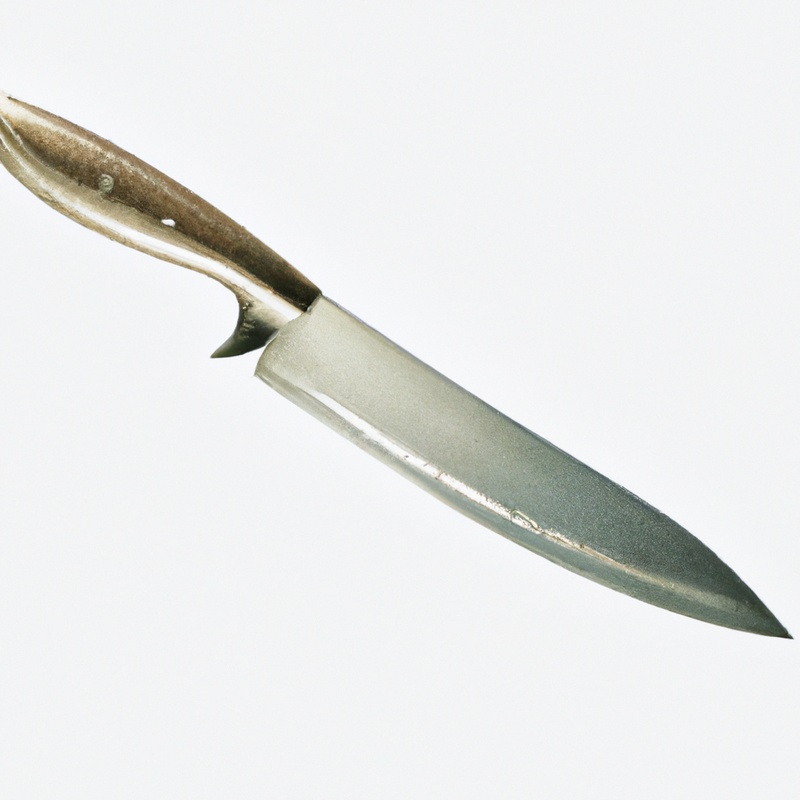
Nitrogen in Stainless Steel Knives
Role of nitrogen in stainless steel
Nitrogen plays a significant role in stainless steel. It improves corrosion resistance, enhances hardness and strength, and influences edge retention.
Nitrogen contributes to the formation of a protective oxide layer on stainless steel, which helps prevent rust and corrosion.
It also promotes the formation of nitrides, which increase hardness and strength. Additionally, nitrogen helps in maintaining sharpness and edge retention in stainless steel knives by facilitating the formation of stable carbides.
The optimal nitrogen content in stainless steel varies depending on the specific grade and intended application.
Different stainless steel grades have different nitrogen contents, so it’s important to choose the right grade for your needs.
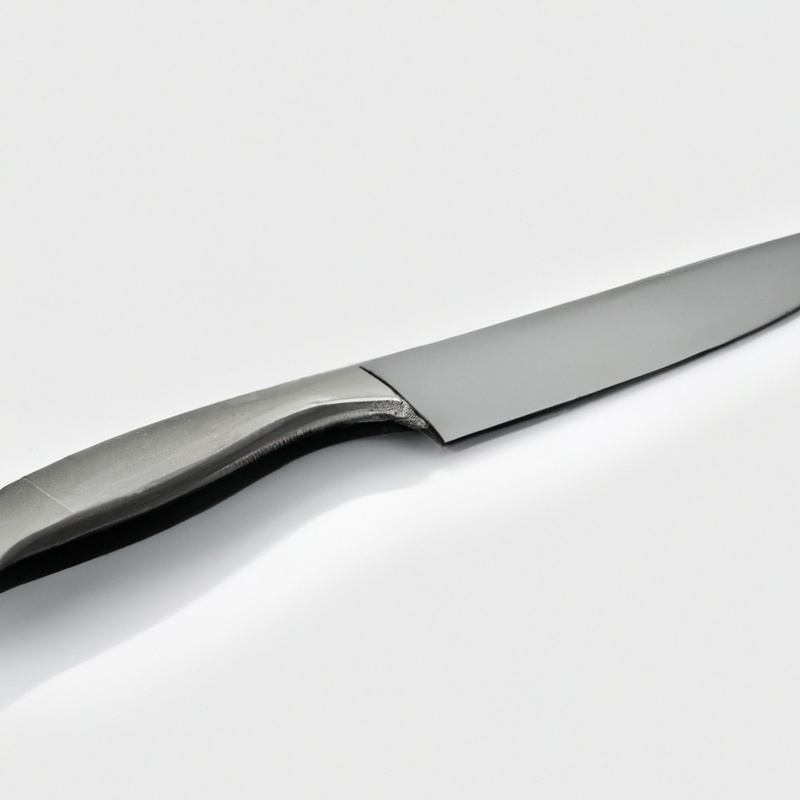
Effects of nitrogen on stainless steel properties
Nitrogen has several effects on the properties of stainless steel.
First, it enhances the corrosion resistance of the material, making it more resistant to rust and oxidation.
Second, nitrogen improves the hardness and strength of stainless steel, making it suitable for applications where durability is essential.
Finally, nitrogen plays a crucial role in edge retention, allowing stainless steel knives to maintain a sharp cutting edge for longer periods.
These effects make nitrogen a valuable alloying element in the production of high-quality stainless steel knives.
Enhanced Corrosion Resistance
Nitrogen’s contribution to corrosion resistance
Nitrogen plays a significant role in enhancing the corrosion resistance of stainless steel knives.
Its presence in the alloy forms nitride compounds which act as a barrier against corrosive elements.
This barrier prevents the formation of rust and oxidation, making the knives more durable and long-lasting.
Nitrogen also improves the pitting resistance of the steel, making it less susceptible to localized corrosion.
In comparison to other alloying elements, nitrogen’s contribution to corrosion resistance is highly valuable, ensuring that your stainless steel knives remain in excellent condition even in harsh environments.
Comparison of nitrogen to other alloying elements
In stainless steel, nitrogen is a unique alloying element that offers several advantages.
When compared to other elements used in stainless steel, such as carbon, chromium, and molybdenum, nitrogen provides enhanced corrosion resistance, improved hardness and strength, and increased edge retention.
Nitrogen also promotes the formation of fine grain structure, which contributes to better mechanical properties.
Compared to other alloying elements, nitrogen plays a vital role in improving the overall performance of stainless steel knives.
Improved Hardness and Strength
Nitrogen’s impact on hardness and strength of stainless steel
Nitrogen plays a significant role in improving the hardness and strength of stainless steel. It achieves this by forming nitrides with other alloying elements, such as chromium and molybdenum, that contribute to the material’s overall durability.
Nitrogen increases the hardness of stainless steel, making it more resistant to wear and deformation.
Additionally, it enhances the strength and tensile properties of the steel, allowing it to withstand higher loads and stresses. The incorporation of nitrogen in stainless steel knives results in blades that are tougher and less prone to damage, offering superior performance and longevity.
Benefits of nitrogen for knife blades
Nitrogen brings several benefits to knife blades. Firstly, it enhances the hardness and strength of stainless steel, making the blades more durable and resistant to wear.
Secondly, nitrogen improves the corrosion resistance of the blades, protecting them from rust and stains.
Additionally, nitrogen plays a crucial role in edge retention, allowing the blades to maintain their sharpness for longer periods. Overall, nitrogen is a valuable element in stainless steel knives, contributing to their overall performance and longevity.
Influence on Edge Retention
Nitrogen’s role in edge retention of stainless steel knives
Nitrogen plays a significant role in the edge retention of stainless steel knives. It enhances the hardness and strength of the steel, allowing it to withstand wear and retain its sharpness for longer periods.
The presence of nitrogen also contributes to the formation of fine carbides within the steel matrix, which further improves edge stability and durability.
Knives with higher nitrogen content are known to maintain their cutting performance over time, making them ideal for tasks that require prolonged sharpness. The proper balance of nitrogen alongside other alloying elements is crucial in achieving optimal edge retention in stainless steel knives.
Blade performance comparison with and without nitrogen
Blade performance in stainless steel knives can be significantly enhanced with the addition of nitrogen. Compared to stainless steel knives without nitrogen, those with nitrogen have improved edge retention, meaning the blade stays sharper for longer periods of time.
Nitrogen helps in reducing wear and tear on the blade and increases its resistance to chipping and deformation.
As a result, knives with nitrogen in their stainless steel composition offer superior cutting performance and durability, making them a preferred choice for professional chefs and cooking enthusiasts alike.
Nitrogen Content in Stainless Steel Knives
Optimal nitrogen levels for knife manufacturing
The optimal nitrogen levels for knife manufacturing depend on the specific stainless steel grade used. Typically, nitrogen content in stainless steel knives ranges between 0.05% and 0.20%.
Higher nitrogen levels can enhance corrosion resistance and improve hardness and strength, but they can also make the steel more difficult to machine and sharpen.
It’s important to strike a balance between these factors to achieve the desired performance characteristics for the knife. Different stainless steel grades have varying nitrogen content, so it’s important to choose the right grade based on your specific needs and preferences.
Different stainless steel grades and their nitrogen content
Different stainless steel grades have varying nitrogen contents.
For example, common austenitic stainless steel grades like 304 and 316 typically contain around 0.1% to 0.15% nitrogen.
Duplex stainless steel grades, such as 2205 and 2507, often have higher nitrogen content, ranging from 0.14% to 0.30%.
Additionally, some high nitrogen stainless steel grades, like Nitronic 50 and Nitronic 60, are specifically designed with nitrogen contents of around 0.2% to 0.4%.
The nitrogen content in stainless steel is an important factor that influences the material’s properties and performance.
Final Verdict
Nitrogen plays a crucial role in the performance and durability of stainless steel knives. Its presence enhances corrosion resistance, improves hardness and strength, and contributes to superior edge retention.
By understanding the importance of nitrogen in stainless steel composition, manufacturers can optimize their knife production to meet the demands of professional chefs and knife enthusiasts.
With the right nitrogen content, stainless steel knives can deliver exceptional cutting performance and longevity. Therefore, selecting stainless steel knives with optimal nitrogen levels is a wise choice for those seeking high-quality and reliable blades.
